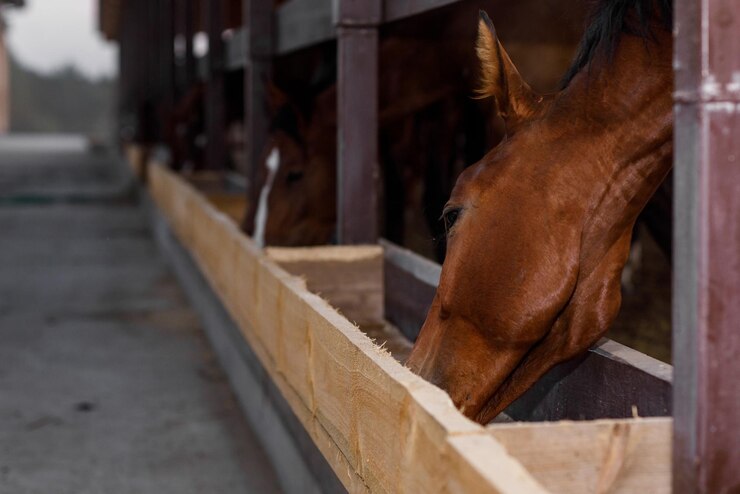The importance of a structured feeding schedule for performance horses cannot be overstated. These horses, due to their high energy demands, require precise nutrition to enhance their performance and ensure optimal health. Crafting an effective feeding schedule involves understanding their unique dietary needs, considering factors such as workload, age, and individual health conditions.

Understanding Nutritional Needs
Performance horses are athletes, and just like human athletes, their diet must be tailored to their activity level. A primary aspect of their nutrition is ensuring a balanced diet rich in essential nutrients.
The Role of Forage
Forage should be the cornerstone of any horse’s diet. Quality forage provides essential fiber, helping in digestion and maintaining gut health. Selecting the right type of forage, such as the second cut hay, is crucial for performance horses.
Importance of Grains
Grains are important for adding calories to a performance horses diet. They provide the energy needed for intense activities. However, it’s important to monitor grain intake to avoid digestive issues.
Supplement Needs
Supplements can play a vital role in meeting a horses vitamin and mineral needs. You may need to consider vitamin and mineral testing as suggested by this guide.
Structuring the Feed Schedule
Creating a feeding schedule requires understanding the timing and portion sizes that suit your horse’s lifestyle and workload.
Frequency of Feeding
Feeding horses twice a day is often a default choice. However, dividing the diet into multiple smaller meals can provide more sustained energy and is recommended for feeding horses engaged in high-intensity activities.
Adjusting Based on Activity
It’s crucial to adjust the diet according to the horse’s workload. Increased physical activity demands more energy, and thus the diet must be enriched to compensate for this. Reference useful scheduling techniques in our horse feeding schedule guide.
Monitoring Weight and Health
Regularly monitoring your horses body condition and health is key to tweaking the diet effectively. Observing signs of weight loss or gain can provide critical insight.
FAQs on Horse Feeding
How much forage should a performance horse consume daily?
Typically, performance horses should consume 1-2% of their body weight in forage daily. This helps maintain their digestive health and provides essential nutrients.
Are grain feeds necessary for performance horses?
Grains can be a vital energy source but should be balanced with forage and supplemented appropriately to avoid overdose and stomach upset.
How do I test the quality of forage?
Testing is essential to ensure proper nutrient content. Our guide on testing hay quality provides insights into these processes.

Conclusion
Developing a proper feeding schedule for performance horses is key to their success and well-being. By focusing on a balanced diet enriched with quality forage, grains, and necessary supplements, owners and trainers can immensely boost their horses performance capabilities.
This article contains affiliate links. We may earn a commission at no extra cost to you.
